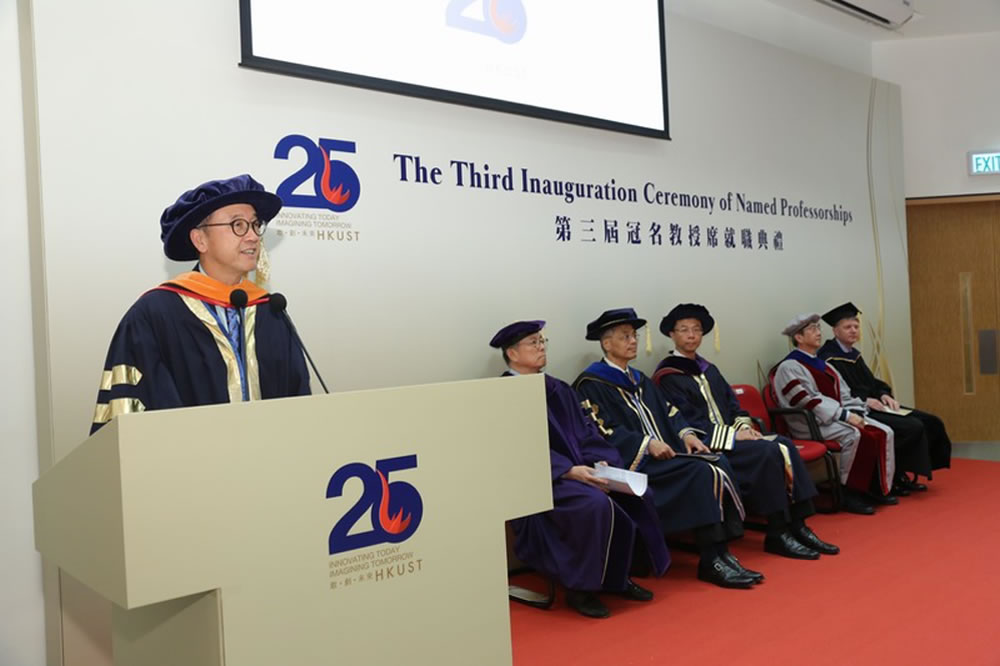Chair Professor, HKUST Energy Institute
In 1978, the first Wolf Prize in Physics was awarded to the Chinese physicist Chien-Shiung Wu for a revolutionary discovery in the field of atomic and nuclear physics. Famously overlooked by the Nobel Prize committee in 1957, Wu is today honored as the “First Lady of Physics” for her extraordinary contribution to scientific knowledge.
Few scholars are more deserving of the title of Wu Chien-Shiung Professor of Science than HKUST’s Professor Jiannong Wang. For nearly three decades, Professor Wang’s research has contributed to our understanding of the fundamental properties of materials and how they make modern life possible.
This journey began in northwestern Mainland China in 1978, when Professor Wang embarked on a B.Eng. in the Department of Electronic Engineering at Xi’an Jiaotong University. This sparked a lifelong fascination with material physics, especially the micro-/opto-electronic applications of semiconductors—the tiny chips that power all modern technologies. The next stop on Professor Wang’s academic journey was the Institute of Semiconductors of the Chinese Academy of Science in Beijing, where she obtained an M.Phil. in 1986.
An important turning point came when Professor Wang was offered a scholarship to pursue a Ph.D. in the UK. In 1990, she completed her doctoral studies at the H. H. Wills Physics Laboratory at the University of Bristol.
In 1994, Professor Wang joined HKUST’s Department of Physics as an assistant professor. HKUST was the perfect match for this talented and ambitious early-career physicist. Despite opening its doors only three years earlier, HKUST had already appointed several leading scientists as faculty. Professor Wang rose swiftly through the ranks of the department, where she now serves as Chair Professor. In 2021, she was appointed Head of the Department of Physics.
During her time at HKUST, Professor Wang has achieved international recognition for her state-of-the-art research on the physical properties of semiconductors and how they might shape future trends in electronics. Her discoveries are helping to overcome technology barriers created by the demand for ever-smaller electronic components and ever-increasing processing speeds.
Professor Wang’s interest in semiconductor materials has never left her. Today, her research in this field extends to the very frontier of modern science. Quantum materials (such as topological materials and atomic thin two-dimensional materials) show extraordinary promise in a range of fields, from energy-saving electronics to quantum computing and data storage. Professor Wang’s work on quantum materials, semiconductor heterostructures, and spintronics is paving the way for next-generation devices that meet the needs of modern society across markets.
From 2013 to 2017, Professor Wang served as Director of HKUST’s William Mong Institute of Nano Science and Technology, helping to drive research on emerging technologies with the power to change human lives. Through her service to the scientific community, capable departmental leadership, and inspirational teaching, Professor Wang perfectly exemplifies the mission of HKUST’s Department of Physics: to nurture “a sense of wonder about the natural world” through innovation and knowledge advancement.

 |













